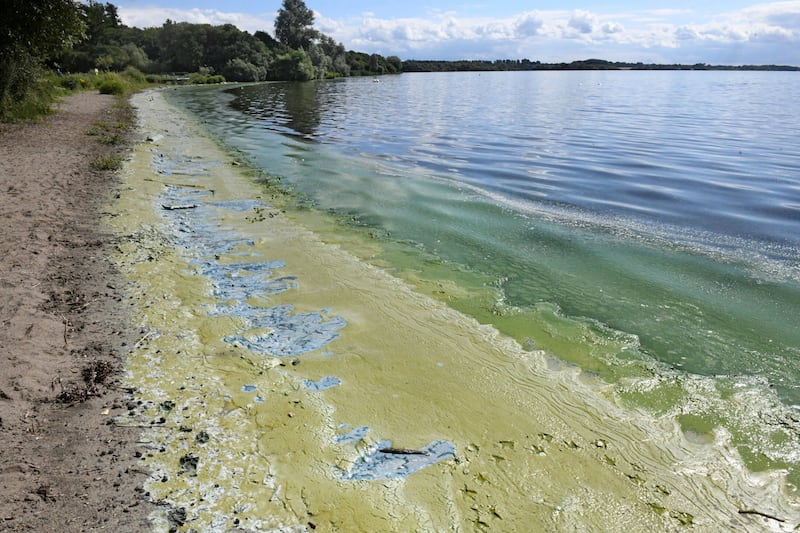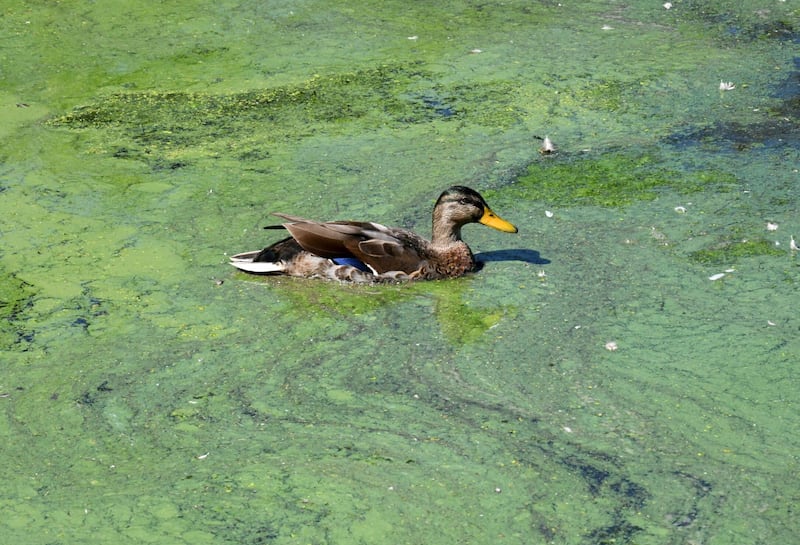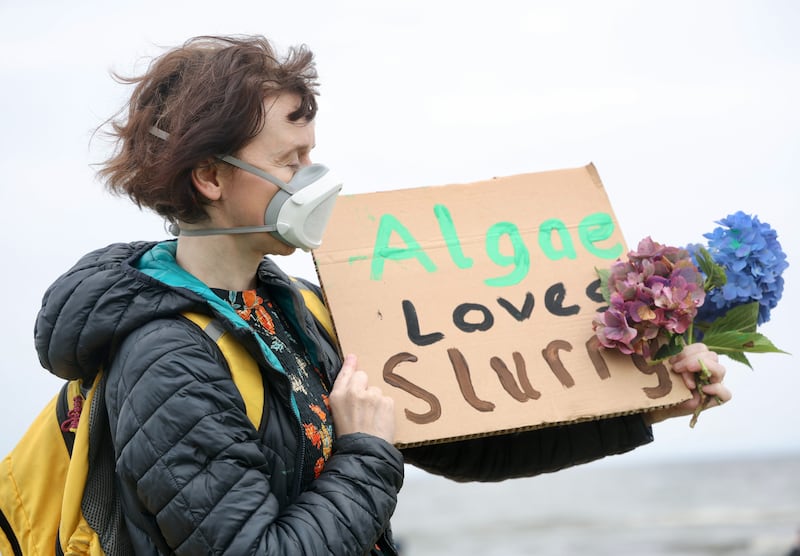Toxic bacteria in Lough Neagh is blooming at its most widespread and extensive ever recorded, government officials have confirmed.
A “perfect storm” hit this summer, with the highest water temperature on record, heavy rainfall followed by warm and sunny weather and clearer waters allowing light to penetrate deeper, all contributing to helping the agricultural run-off and waste water-fed toxic blue-green algae to bloom like never before.
While it was previously reported the 1970s saw similar algae blooms, government officials said they were in large part non-toxic and benign, unlike what is happening now.
The bacteria, harmful to humans and often deadly to animals and marine life, has washed up across the north’s waterways, with the sludge-like substance on many of the lough’s shores, all along the Bann River and into the sea on the north coast.
In total, there have been 168 confirmed reports of cyanobacteria in waterways across the north, at 65 different locations, said Gareth Greer, from the Northern Ireland Environment Agency’s water management unit, at a briefing.

Paul Donnelly, also of the NIEA, said a working group is being put together to examine how to combat the algae, but added it would be easier to make spending decisions with ministers in place at Stormont.
Officials from the Food Standards Agency (FSA) and Northern Ireland Water (NIW) insisted there is no risk in eating fish caught commercially in the lough or to drinking treated water. However, people have been warned not to eat fish caught recreationally.
At the briefing, officials said there was a drop in the amount of nutrients, including nitrogen and phosphorus from agricultural run-off, waste water and septic tanks in the waterways in the years after 2006. This followed the publication of the first Nutrients Action Programme (NAP).
Over the last ten years, the amount of nutrients identified, mostly in the north's rivers, has increased by as much as 50 percent. There was no evidence linking the present critical state of the lough and the waterways to Stormont’s 2013 Going for Growth plan aimed at boosting the agri-food industry, a DAERA official said.

The briefing heard 62 percent of the phosphorus comes from agricultural run-off, 24 percent from waste water and 12 percent from septic tanks.
Gerry Darby, strategic manager at Lough Neagh Partnership, said: "Although we can attribute the sorry state of the Lough to many factors including the agri-industry, sewage, septic tanks, zebra mussels and even climate change, we must all take some responsibility and come together to find a solution."
"There is no quick fix to this problem. It has been a long time in the making and it will take a bit of time to solve."

Mr Donnelly, of the NIEA, said: "If we had ministers (at Stormont) that would help the situation because this is not going to happen quickly.
"It is going to cost money, we do need investment, investment in people, resources to bring forward some of the actions that are going to be needed.
"It would be more helpful to have ministers in place to help us push this forward and take decisions that are going to need to be taken."



